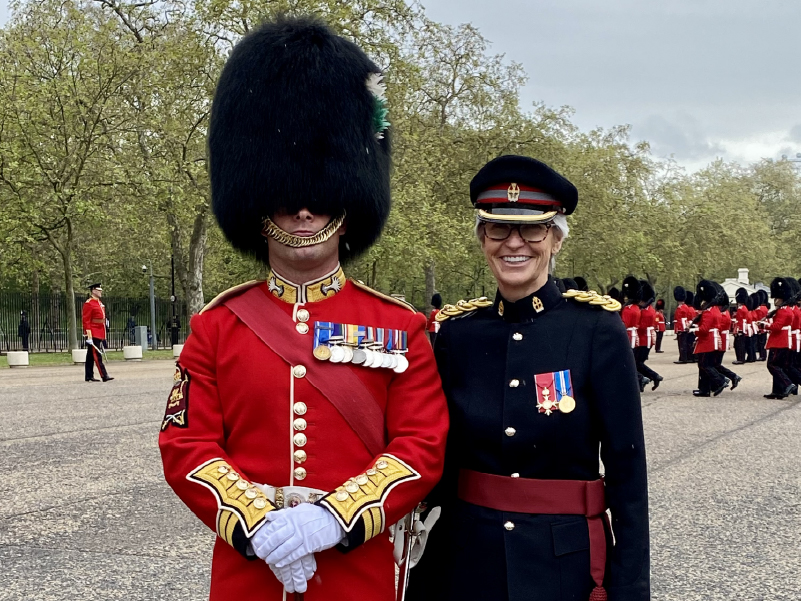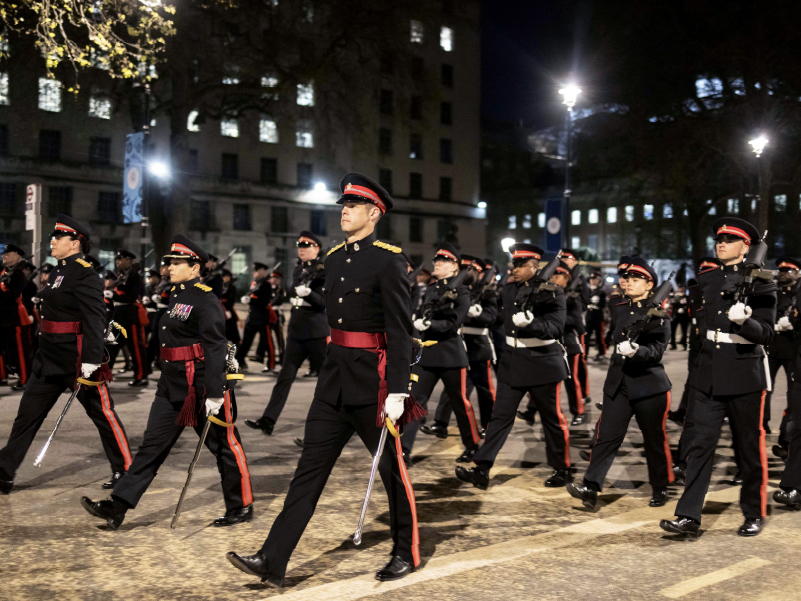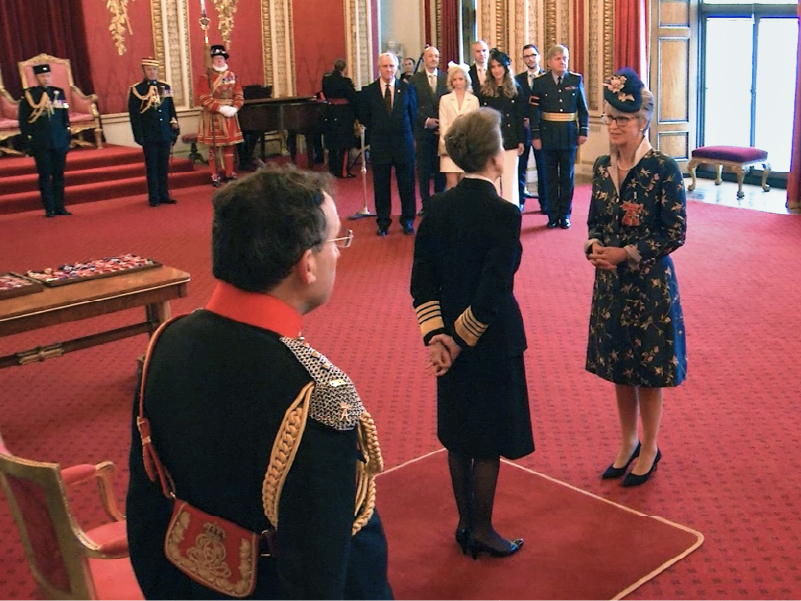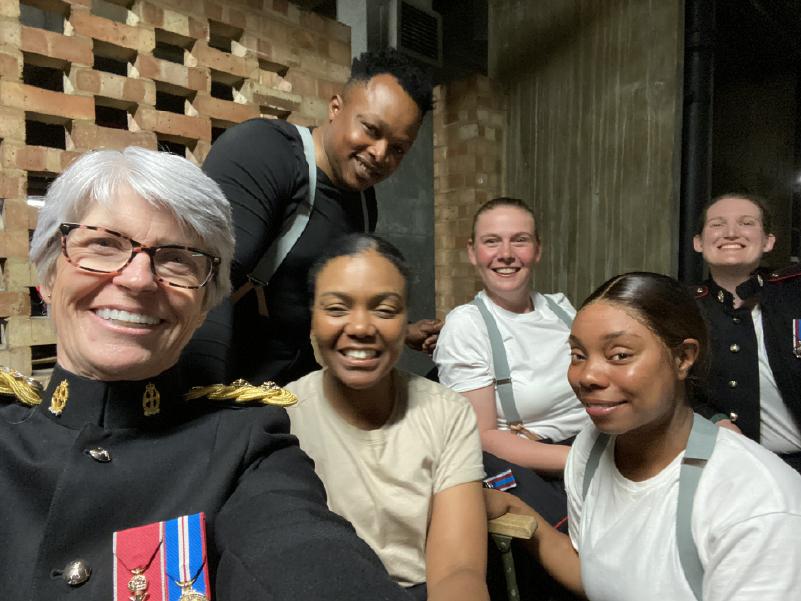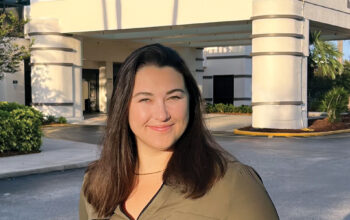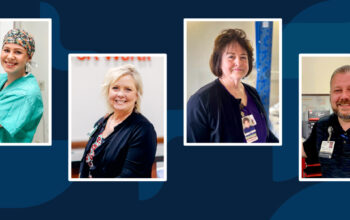Carol Kefford was first drawn to nursing after a childhood hospitalization, and she remained committed to the profession through several starts, stops and changes.
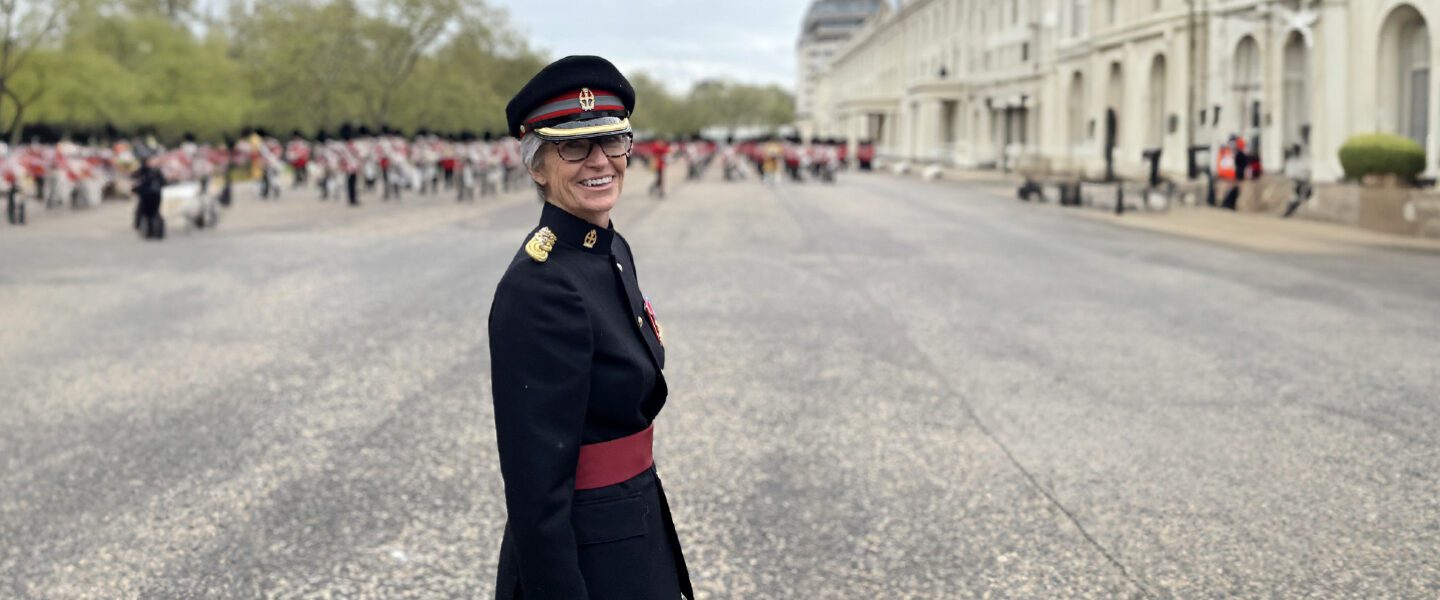
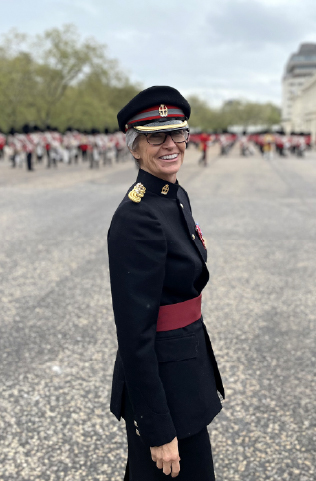
When Carol Kefford turned 50, she relinquished her nursing license, and she and her husband boarded their sailboat and headed out to sea. About six months into their adventure, Carol began to feel restless. She had trouble sleeping and couldn’t figure out why she just didn’t feel right. What was wrong with her, she wondered? They were living their dream in the middle of the Mediterranean. And then it dawned on her. A nurse and military nurse leader for most of her career, Carol wasn’t ready to give up nursing completely. She re-registered and worked enough to stay active as they continued their travels over the next five years.
“It’s fascinating reflecting back on that [decision] and the difference that it made,” she says.
Once back on land, a short-term assignment with Nuffield Health turned into a full- time nurse leader role as clinical director and chief nurse. Back in the workforce, Carol made a meaningful impact, especially during the COVID-19 crisis. That experience, coupled with her military service and support of future nurse leaders, prompted her nomination for one of the U.K.’s highest honors. In 2023, Carol was appointed Officer of the Order of the British Empire (OBE) for services to nursing. OBE appointees are recognized at an Investiture at Buckingham Palace for having a major national and local impact in their chosen area. Carol, having served almost 20 years in the army, was recognized for her nursing leadership achievements across the independent and military sectors, and she received her insignia from Princess Anne. In addition to making the King’s Honours List for 2023, Carol also marched at the Coronation of King Charles III and Queen Camilla in her honorary military role with Army nursing.
Carol is currently the Divisional Chief Nursing Executive for HCA Healthcare in the U.K. Based in London, she leads a team of nine chief nursing officers, 1,700 nursing professionals and nearly 1,000 allied health professionals across HCA Healthcare’s network of hospitals, outpatient centers and specialist clinics.
“HCA Healthcare is very definitely the premier independent hospital group in the UK, so the attraction for me was the scale of the work that’s done here, the complexity of the work and the reputation that HCA Healthcare has as a healthcare provider in this country,” she says.
She recently shared her nursing journey, lessons learned and what it was like to be honored at Buckingham Palace.
Carol Kefford on Nursing and Purpose
A nurse from the beginning
Q: Why did you become a nurse?
A: I was very ill when I was seven. I had a very, very nasty appendix and was in hospital for three weeks, and I just loved watching what the nurses were doing. I considered other roles, other jobs, and every time I just came back to nursing because it felt right for me.
Q: What confirmed that you were on the right path?
A: Nursing was so interesting. I read books and stories about nurses. If I met a nurse, I wanted to know about their job, so I was constantly gaining insights. I don’t honestly remember there being any surprises when I started because I had just been living it and thinking about it for so long.
Why Nursing
An unexpected route
Q: How did you end up in the army?
A: Because I had a sense of adventure. It had always been my expectation that, once I’d been registered [as a nurse] for a couple of years, then I would work overseas. I was looking at New Zealand and Australia. Then I met somebody I’d vaguely known at a New Year’s Eve party who was in the army. He was asking me what I was planning on doing and I wasn’t sure. I thought it was somewhere abroad and he said, ‘You’d love the army, Carol.’ To which my response was, ‘Don’t be ridiculous, you know that’s far too structured. It’s too much discipline.’ He said, ‘No, no, it’s not what you think.’ I looked at the Army, the navy and the Air Force, and the army rang me up. I served for nearly 20 years.
Q: Did you ever end up in Australia and New Zealand?
A: Only as a tourist. My overseas postings were to Hong Kong and Nepal. I had a slightly unusual army career for a nurse because I spent a lot of my time not nursing. I was involved in training recruits, nurses, dental hygienists and various other clinical trades, and I ran nursing officer training for three and half years. Another non-nursing role I had was running recruitment and selection for nurses as officers, soldiers and trainees. That was another reason for joining the army — I could do things related to nursing, but it didn’t have to always be clinical practice.
Career development and lessons learned
Q: What is your purpose, and what gives you the most satisfaction?
A: That’s a really good question. The army gave me so much, but it actually built on what nursing was already giving me. It’s about making a difference and it’s about using your skills. You’re working as part of a close team to improve something, and that could be to improving something for a patient in the moment or it could be about improving something over time.
I absolutely love caring for patients. As I’ve become further away from the bedside, my motivation is always about enabling great patient care. So I now enable great patient care through being the best leader I can be.
Q: Did you ever leave nursing to try something else?
A: After I’d been in the army for five years, I actually left because I’d always had an interest in the business and commercial world as well. I left slightly unsure, but I’d been offered a job with a big retailer called Marks & Spencer. They have had a phenomenal reputation in developing leaders as an employer — so much so that they can be highly selective of who they bring on to one of their management training programs.
I learned a lot about myself in the eight months I was with them. They were a phenomenal organization. I still remember lessons I learned with them, but I really missed nursing and I really missed the fact that your patients need you. I missed the fact that you make a difference. And that was part of me understanding that, actually, what I am at heart [is] a military nurse. So I just rejoined the army.
Influential Mentors
Experience as a Teacher
A lifetime achievement
Q: Is it presumptuous to say that the OBE award is like a lifetime achievement honor?
A: Honor is exactly the right word. You have to have supporting nominations from different people. It’s quite a portfolio that is submitted. It can be for one really major incident or thing that somebody dealt with, but mostly it’s for service over a period of time.
Q: What was it like to be in Buckingham Palace?
A: My main concern was the curtsy and curtsying in heels because I don’t know if you’ve ever tried to curtsy in heels — that’s when you can wobble. But in all honesty, The Palace knows exactly how to settle everybody down. They make it really special and as easy as possible.
Q: Did you practice your curtsy?
A: Of course I did! And I was thrilled to have Princess Anne present the OBE to me [pin me] because I admire her so much. She’s done so much for this country, and she’s a real feisty woman. I was expecting to have a conversation along the lines of ‘Have you come far?’ or just some small talk.
And then she asked me all about the relationship between the independent sector and the National Health Service. Did I think it had changed during COVID? How did I think healthcare would be organized in the future? So that was a surprise!
Buckingham Palace
The HCA Healthcare impact
Q: How does HCA Healthcare’s scale benefit colleagues across roles in the U.K.?
A: In the U.K., HCA Healthcare is part of the independent sector. We have in the U.K. huge hospitals that are part of the National Health Service, which are government-run hospitals. The majority of healthcare in this country is delivered through the National Health Service. We then have independent healthcare, which is funded by insurance, self-pay or sometimes by corporations.
HCA Healthcare is unique in providing urgent care. We don’t have emergency departments, but we provide urgent care and carry out really highly complex cancer and cardiac work, early-stage drug trials, live donor transplants and neurorehabilitation. We have the scale that the other independent providers don’t have. For any healthcare professional, what that means is you can have a really meaningful career from coming to us for a placement as a student nurse to graduating and all the way through your leadership development.
We’ve got different specialties you can work in, and you can have a really varied, very meaningful career as a nurse.
